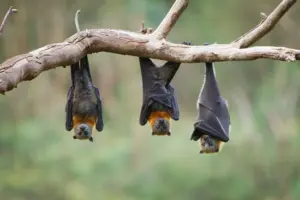
Singapore vaping penalties: Singapore has announced harsher penalties for vaping as authorities move to crack down on the growing use of drug-laced e-cigarettes, particularly those containing the anaesthetic drug etomidate.
From September 1, offenders caught using or possessing vapes, even standard ones, will face higher fines starting from S$500 (US$390) and mandatory rehabilitation. Those found with drug-laced vapes will be subject to far tougher punishments, including jail terms of up to 20 years and 15 strokes of the cane. Foreigners risk deportation, the loss of work permits, and bans on re-entering Singapore.
Also Read | Young vapers three times more likely to start smoking, study finds
The move comes as authorities report a surge in the popularity of etomidate-laced devices, commonly referred to as “Kpods.” A random test of 100 seized vapes in July found that one-third contained the drug, which produces effects similar to ketamine. Viral videos of young people acting erratically after vaping have further fueled alarm in a country already known for some of the world’s toughest drug laws.
Health Minister Ong Ye Kung described vapes as “delivery devices” for dangerous substances, warning they had become a gateway to serious drug abuse. The government has also temporarily reclassified etomidate as a Class C controlled drug for six months while new legislation is drafted.
The crackdown is being reinforced with a broad public health campaign. Anti-vaping advertisements have been plastered across buses, trains and public spaces, schools are running targeted education programmes, and vape disposal bins have been installed in community centres, universities, and even at Changi Airport for arriving tourists. Authorities have also stepped up checks at border crossings and deployed roving patrols in bus terminals, parks, and trains to conduct spot checks.
Singapore banned vaping in 2018 but has struggled to curb the practice, particularly as many devices are smuggled in from neighbouring Malaysia and Indonesia. The tougher measures align with international efforts, with countries including Belgium, the UK, and Australia also tightening restrictions to curb youth vaping.








